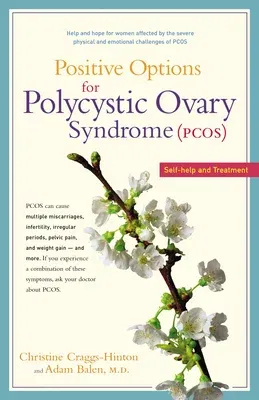Christine Craggs-Hinton
(Author)Positive Options for Polycystic Ovary Syndrome (Pcos): Self-Help and TreatmentHardcover, 17 June 2004

Qty
1
Turbo
Ships in 2 - 3 days
In Stock
Free Delivery
Cash on Delivery
15 Days
Free Returns
Secure Checkout

Part of Series
Positive Options for Health
Print Length
160 pages
Language
English
Publisher
Hunter House Publishers
Date Published
17 Jun 2004
ISBN-10
1630266280
ISBN-13
9781630266288
Description
Product Details
Author:
Book Format:
Hardcover
Country of Origin:
US
Date Published:
17 June 2004
Dimensions:
21.59 x
13.97 x
1.27 cm
ISBN-10:
1630266280
ISBN-13:
9781630266288
Language:
English
Pages:
160
Publisher:
Series:
Weight:
331.12 gm